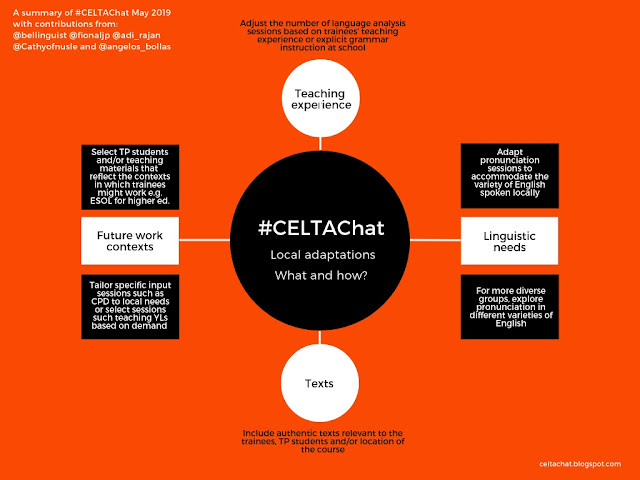Hi CELTA and Trinity CertTESOL teacher trainers! #CELTAchat was on the first Monday of the month but from 2020 it is on the first Thursday 7-8pm GMT live on Twitter and then goes into asynchronous mode for 24 hours for those trainers that can't make the live chat. For those who aren't on Twitter, we have a Facebook Page too. You can suggest a topic on the monthly Padlet that gets posted a week or so before, then vote for the topic & join in.
Sunday, 12 May 2019
#CELTAchat May 6: Local Adaptations - What & How?
A Summary of #CELTAchat May 2019 By Adi Rajan
Many thanks to @bellinguist @fionaljp @adi_rajan@Cathyofnusleand @angelos_bollas for their contributions to May 2019 #CELTAchat
We discussed ‘meaningful local adaptations: what and how’?
· @adi_rajan shared an example of a British tutor using texts with references to current events in the UK such as Brexit which Indian trainees weren’t familiar with. This could be both an argument for making texts contextual to trainees as well as finding opportunities to develop trainees’ awareness of the wider world.
· @adi_rajan shared an example of a British tutor using texts with references to current events in the UK such as Brexit which Indian trainees weren’t familiar with. This could be both an argument for making texts contextual to trainees as well as finding opportunities to develop trainees’ awareness of the wider world.
Subscribe to:
Post Comments (Atom)

No comments:
Post a Comment